 The West is back. The invasion of Ukraine has brought those who share democratic values together, writes FT analyst Martin Wolf. For the NATO alliance, it was a time of rebirth. For Germany, it was a Zeitenwende. For Finland and Sweden, it was time to reject neutrality. Volodymyr Zelenskyy won the propaganda war, hands down. He is the heroic leader Ukraine — and the West — so desperately needed.
The West is back. The invasion of Ukraine has brought those who share democratic values together, writes FT analyst Martin Wolf. For the NATO alliance, it was a time of rebirth. For Germany, it was a Zeitenwende. For Finland and Sweden, it was time to reject neutrality. Volodymyr Zelenskyy won the propaganda war, hands down. He is the heroic leader Ukraine — and the West — so desperately needed.
Ukraine’s heroic resistance has revealed the brittleness of authoritarian power, which often hides behind the veneer of artificial postures, says a leading analyst.
Looking toward 2023 after a bitter winter, a stalemate on the ground appears most likely. The situation is reminiscent of Korea in 1952 after a year of attacks and counterattacks, notes Robert Zoellick, a former World Bank president, U.S. trade representative and U.S. deputy secretary of state, and author of “America in the World: A History of U.S. Diplomacy and Foreign Policy.” But wars unleash unpredictable forces. Mr. Putin believes he can still win a contest of wills—if not with weary Ukrainians enduring raw conditions, perhaps with Europeans facing energy shortages, high prices and recessions, or Americans with a new Congress that objects to the costs of a surrogate war.
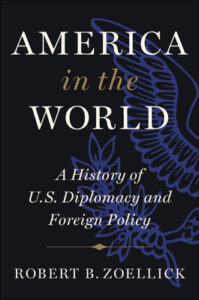 Yet Mr. Putin runs risks, too, he writes for the Wall Street Journal. Russian troops at the front in 2023—kept in line by Chechens and Wagner Group killers—may begin to resemble the czar’s exhausted and hungry but frustrated and dangerously armed regiments of 1916, adds Zoellick, a former board member of the National Endowment for Democracy (NED).
Yet Mr. Putin runs risks, too, he writes for the Wall Street Journal. Russian troops at the front in 2023—kept in line by Chechens and Wagner Group killers—may begin to resemble the czar’s exhausted and hungry but frustrated and dangerously armed regiments of 1916, adds Zoellick, a former board member of the National Endowment for Democracy (NED).
Ukraine’s resistance is one factor leading Stanford University’s Francis Fukuyama to express fresh confidence that liberal democracies are destined to overcome autocracies, adds analyst Michael Hirsh. This is partly because, in the past year, the classic pitfalls of dictatorship have been made clearer in the two nations that together pose the biggest threat to the liberal international order, China and Russia, he writes for Foreign Policy.
Surrounded by Kremlin yes-men, Putin clearly didn’t understand how seriously Ukraine might resist his invasion or how fiercely the West would respond. In the last few years, Xi has become as powerful an autocrat as Putin is—indeed, the most dominant dictator in China since Mao Zedong—and as a result he may be making bad decisions because fewer people dare to naysay him, Fukuyama said.
Steve Pifer, a former US ambassador to Ukraine and Fukuyama’s colleague at Stanford’s Freeman Spogli Institute, talks about the origins of the invasion, why near-term peace negotiations are unlikely to help, and what the US and NATO need to do to shore up Ukraine (below).
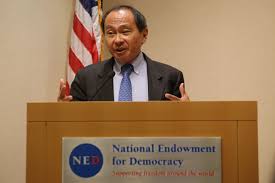
Former NED board member Francis Fukuyama
War is inherently unpredictable. Indeed, the course of the conflict has served to invalidate widespread early prognostications that Ukraine would quickly fall; a reversal of fortunes is impossible to discount, note analysts Liana Fix and Michael Kimmage. It nevertheless appears that Russia is headed for defeat. Less certain is what form this defeat will take. Three basic scenarios exist, and each one would have different ramifications for policymakers in the West and Ukraine, they write in Putin’s Last Stand: The Promise and Peril of Russian Defeat, an article for Foreign Affairs:
- The first and least likely scenario is that Russia will agree to its defeat by accepting a negotiated settlement on Ukraine’s terms. A great deal would have to change for this scenario to materialize because any semblance of diplomatic dialogue among Russia, Ukraine, and the West has vanished. ….To save face domestically, the Kremlin could claim it is preparing for the long game in Ukraine, leaving open the possibility of additional military incursions. It could blame its underperformance on NATO, arguing that the alliance’s weapon deliveries, not Ukraine’s strength, impeded a Russian victory. For this approach to pass muster within the regime, hard-liners—possibly including Putin himself—would have to be marginalized. This would be difficult but not impossible. ….
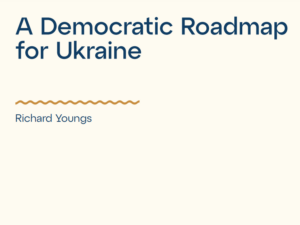 A second scenario for Russian defeat would involve failure amid escalation. The Kremlin would nihilistically seek to prolong the war in Ukraine while launching a campaign of unacknowledged acts of sabotage in countries that support Kyiv and in Ukraine itself. In the worst case, Russia could opt for a nuclear attack on Ukraine. The war would then edge toward a direct military confrontation between NATO and Russia. Russia would transform from a revisionist state into a rogue one, a transition that is already underway, and that would harden the West’s conviction that Russia poses a unique and unacceptable threat. ….
A second scenario for Russian defeat would involve failure amid escalation. The Kremlin would nihilistically seek to prolong the war in Ukraine while launching a campaign of unacknowledged acts of sabotage in countries that support Kyiv and in Ukraine itself. In the worst case, Russia could opt for a nuclear attack on Ukraine. The war would then edge toward a direct military confrontation between NATO and Russia. Russia would transform from a revisionist state into a rogue one, a transition that is already underway, and that would harden the West’s conviction that Russia poses a unique and unacceptable threat. ….- The final scenario for the war’s end would be defeat through regime collapse, with the decisive battles taking place not in Ukraine but rather in the halls of the Kremlin or in the streets of Moscow. ….. No matter how it comes about, a Russian defeat would of course be welcomed. It would free Ukraine from the terrors it has suffered since the invasion. It would reinforce the principle that an attack on another country cannot go unpunished. It might open up new opportunities for Belarus, Georgia, and Moldova, and for the West to finish ordering Europe in its image. ….
In any event, the chances that a pro-Western democrat would become Russia’s next president are vanishingly small, Fix and Kimmage suggest. Far more likely is an authoritarian leader in the Putinist mold.
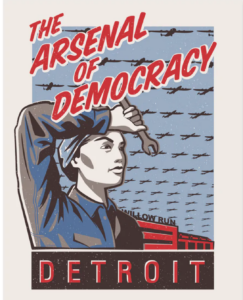 The world’s ‘arsenal of democracy’ is in peril, according to and As Ukraine’s valiant fight has shown, wars against great powers are rarely won quickly and the price of freedom is high.
The world’s ‘arsenal of democracy’ is in peril, according to and As Ukraine’s valiant fight has shown, wars against great powers are rarely won quickly and the price of freedom is high.
If we’re to be victorious, we must pay as much attention to the weapons that destroy enemy forces as to the submarines, aircraft and tanks that fire them, they write for the Journal. Multiyear procurement of munitions would allow the U.S. to become the arsenal of democracy once again, and to bolster the defenses of the free and open liberal order.
What Putin fears most
On the other hand……. the notion of containment followed by a negotiated resolution assumes a degree of rationality and control, and the possibility of a stable postwar political equilibrium, adds Brookings analyst Constanze Stelzenmüller. But what if Putin’s rants about Nazis in Ukraine and Satanism in the West are not political theatre but — as the historian Lawrence Freedman has suggested — a paranoid projection of fear at the irredeemable rot in his own system?
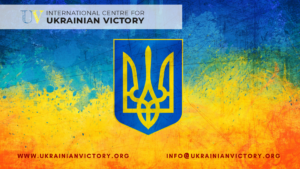 In truth, Ukraine’s allies have exactly two choices, she writes for the Financial Times: one failing state to Europe’s east, or two. Conversely, if Ukraine is given the chance to win, and to transform into a well-defended, stable democracy with a Slavic culture, that would not just be a huge security gain for Europe but a model for Russia. That, of course, is what Putin fears most.
In truth, Ukraine’s allies have exactly two choices, she writes for the Financial Times: one failing state to Europe’s east, or two. Conversely, if Ukraine is given the chance to win, and to transform into a well-defended, stable democracy with a Slavic culture, that would not just be a huge security gain for Europe but a model for Russia. That, of course, is what Putin fears most.
It’s not at all sure that all European countries have internalized Putin’s goal. If anything, his unremitting war has opened important rifts inside the EU. How they will be overcome could determine Europe’s future security architecture, notes Carnegie Europe’s Judy Dempsey:
- The first rift concerns the viability of the EU’s soft power. The EU was created out of the rubble of World War II. Its ideology, for want of a better word, continues to be a peace project. ….Despite the destruction Russia is wreaking on Ukraine, both Chancellor Olaf Scholz and sections of his Social Democratic Party and business lobbies hanker after the status quo ante.
-
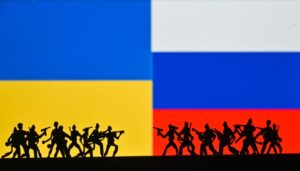
Credit: ACUS
Herein lies the second rift. It is linked to EU member states’ varied historical experiences and the resulting threat perceptions. The EU as a peace project was finessed over the years without a voice from the Eastern or Central Europeans. They had to endure living under the dictatorship of the Soviet Union. Today, Western Europe, particularly France and Germany, considers a future European security architecture involving Russia in some form. For the East Europeans, security is about defending themselves against Russia. That is why the latter want Ukraine to win and Russia to be defeated.
The Zelensky Effect has two dimensions, according to Henry E. Hale and Olga Onuch, co-authors of a new book (above):
- On the one hand, it is this civic-minded society where repeatedly ordinary citizens rise up collectively against authoritarian leaders or against individuals who are backsliding the country into authoritarianism. They do so in the nineties. They do so in the 2000s. They do it in 2004 with the Orange Revolution and then in 2013-14, with the Revolution of Dignity. …
- It’s also about Zelensky’s discourses and how his message helps rally ordinary citizens around the civic idea of the state, around democracy, and Ukraine’s European trajectory, they add, citing Jessica Pisano’s Journal of Democracy essay on “How Zelensky Changed Ukraine.”
What went wrong with Putin’s attempt at a glorious victory over Ukraine? Some @AtlanticCouncil colleagues and I assess the causes. My take: Putin understood neither Ukrainian patriotism nor Russia’s rot. @ACEurasia https://t.co/HNTIMdtOba
— Daniel Fried (@AmbDanFried) December 20, 2022







